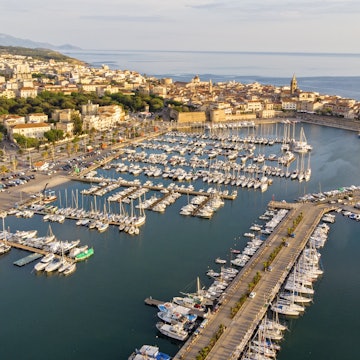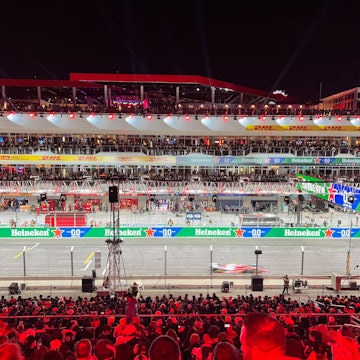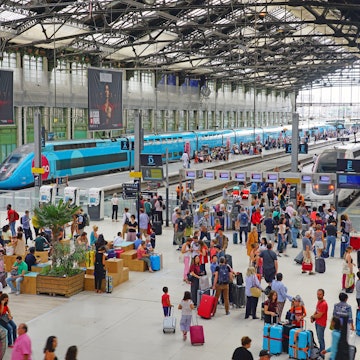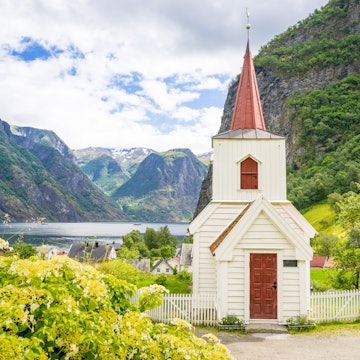
What doomsday preppers can teach us about the end of the world

May 3, 2020 • 12 min read

"I suppose there's some narcissistic pleasure maybe in being among the elect of history, the people who get to see the final act" ©Juraj Kamenicky/Shutterstock
Mark O’Connell has a lot to worry about. There is, of course, a global pandemic. Then there’s fighting off boredom while his home city of Dublin is on lockdown.
Then there’s also the apocalyptic scenarios that Mark spent a year researching for his book: an asteroid wiping out the majority of life on the planet, climate change destroying coastal cities and inundating landlocked areas with refugees, nuclear annihilation. You know, the usual stuff.
Much has already been written about the timeliness of Mark’s book, Notes from An Apocalypse, which was released April 14. But it’s hard to approach the work without wanting to use it as a way to grapple with a world ground to a halt, hundreds of thousands of deaths, and no clear end in sight.

On the surface, the book is about the apocalypse (or an apocalypse, one of several, as the title suggests) and those who prepare for its imminent arrival. But it’s also a book about anxiety, both the writer’s and our own, collective anxiety – concerning what we might be doing to the Earth and to ourselves.
The book is a sort of travelogue in which Mark takes a series of what he calls “perverse pilgrimages” to places where people are preparing, in one form or another, for the end of the world. In South Dakota he visits a former army munitions facility turned “survival community” where private bunkers are sold for around thirty-five thousand a pop. He then heads to New Zealand to visit the private retreat of a Silicon Valley billionaire who bought the land as a place to wait out the coming collapse of civilization.
We got a chance to talk to Mark from his home in Dublin. What follows is an edited interview.

How did you come about researching this book? Where did the idea come from?
I knew I wanted to write about the mental state that I was in, in the early part of the book where I was kind of caught between anxiety about what was happening in the world and a desire to protect my kids.
But I didn't have a frame for it. It was just a formless anxiety that took in climate change in particular, and a general sense of political fragmentation and just an apprehension of the future seeming particularly dark. And not knowing quite what to do with that as a parent.
I knew I wanted to write about that because it felt like the only subject for me at that point, but I couldn't write a book about feeling anxious.
So I needed a frame for that anxiety. In a way the book tracks that progress. During that time of sort of formless anxiety, I got really into the whole [apocalyptic] prepper thing. Not as a kind of adherent, but it was a fascinating thing for me as a journalistic outlet.
And at that point, I realized that that was a channel for my own anxiety and the way that I could externalize it. And I think what happened really was that I started to see this whole vista open out of the apocalypse and people preparing for the end of the world. And that seemed to give me a subject all of a sudden, a frame that I could put all these shapeless anxieties into. And at that point, I think I knew I had a subject for a book.
You travel to South Dakota to research xPoint, a proposed underground community made of old munitions bunkers. What was that like?
Part of the reason why I wanted to go there was because it seemed like a really interesting landscape. Part of what I wanted to do was explore landscapes, and I wanted to explore ideas through landscapes. And this seemed like a really otherworldly, deeply strange place. It was something about this sort of weird juxtaposition of this emptiness and rolling, beautiful plains, and then these just really extraordinary bunkers just jutting up out of the landscape that carry a really dark, interesting energy for me.

Tell me about your experience with Robert Vicino, the man who owns the bunkers and is selling them to doomsday preppers for around $35,000 a piece. He seemed like an interesting character, a sort of a salesman of the apocalypse.
He's an amazing character, a real gift for a writer in the sense that he sort of relishes coming across as a bit of an asshole. And he's dialing it up, deliberately. And I think the interesting thing about my dynamic with him, is that he's a smart guy. He knew me immediately. He knew I was this sort of liberal, intellectual, European guy, and he knew how to, like, press my buttons and he succeeded pretty well, so that was sort of part of the dynamic between us.
But also, you mentioned the whole salesman thing. And I don't think I really thought about this properly until after I met Vicino, and when I started writing about him. But it kind of struck me that the people that I like to write about are salesmen. I've always enjoyed it – not even in a perverse way, in a very simple, straightforward way. I've always enjoyed the experience and the process of being sold something. It's quite strange. I'm quite openly a socialist, and that's a big part of the book. But there's something exhilarating to me about selling and buying. And I love the experience, and I just like the dynamic between a salesperson and a customer, even if I'm not going to buy the thing, I like the experience.
And similarly, I tend to write about people who are salespeople in some way. And I thought about this a bit recently: I write a lot about America. In both of my books so far, a lot of the kind of focus has been on Americans and American culture. And I wonder whether that has something to do with how being a salesperson is in some way – I don't mean to be insulting – but it is, in some way, embedded in the national character of America. Americans are great at selling things and selling the idea of themselves in a way that Irish people just are not at all. I always think that when you meet a homeless person on the street, in Los Angeles or whatever, and they will have a story to tell you and they will sell you some version of themselves.
I think there's something there in the culture that makes Americans really good storytellers and communicators of themselves and their stories, and therefore really good salesmen, and therefore again, really interesting to write about it, from a writer’s perspective.
And Vicino was like the ultimate version of that, in a way, because the kind of underlying theme of salesmanship becomes really explicit with Vicino, and the nature about exchange of our interaction with him, literally trying to sell me a bunker in this place.

You visit New Zealand as a place where wealthy Silicon Valley types are buying up land for potential retreats in case of the apocalypse. Tell me a little bit about that experience.
The whole reason I went there really was that this country was suddenly being talked about everywhere as this apocalyptic retreat for Silicon Valley billionaires and people from Europe and America who wanted a safe space to retreat to.
My impetus in investigating, I was like, “Okay, why? Why New Zealand? What is it about this place?” And within about half an hour of getting off the plane. I answered that question in a way.
It's just extraordinarily beautiful. And if you had endless resources, like Peter Thiel [one of the Silicon Valley billionaires who purchased land in New Zealand in 2015], you would want to own property in places like that. There's a lot about New Zealand that is extremely appealing.
And how do New Zealanders, by and large, feel about their kind of status as a potential retreat for billionaires?
It's a somewhat different situation now, but at the time, it was a really interesting thing to talk to New Zealanders about because it's a small country. It's like Ireland in some ways – it's a small, post-colonial country with a bit of an inferiority complex about a much, much larger neighbor beside it, as Ireland also does. So the idea that people are talking about you internationally is slightly flattering. You feel like you feel you're above your weight grade.
But I think beneath that there was a real sense of “Who are these people? Who are these rich American and European assholes who are down here buying up our land, and they don't care or know anything about New Zealand culture?” One of the things that struck me about New Zealand is that, in terms of post colonial countries, it has a very advanced conversation around its history. And they're very sensitive and sophisticated in terms of how they deal with their colonial history, in terms of integrating Maori customs into everyday life and so on.
So there's a real sense of, “These people who are coming down here and buying up land, they don't know anything about us. They don't have any sensitivity around the land, around the culture that's connected with the land.”
It's sort of a return of the colonial mindset that we're seeing here. I heard that repeatedly with the New Zealanders that I talked to that this is the colonialists come back again, under a different guise. They are not bringing guns, but it's the same mindset. So that was really interesting.

You go to the Scottish Highlands on a sort of nature retreat, a "solo," where you spend 24 hours confined to a small circle next to your tent with nothing to do. Could you talk a little bit about your experience with the solo? What did you find out? Did you come back with a different outlook?
The sort of narrative, for want of a better term, of that chapter is me in some way trying to move past my cynicism about even being in a place like this, undertaking a project like this, surrounded by this kind of quite earnest, hippie-ish people and me trying to break through that cynicism. And I did break through it. In a way, that's the experience that I had, in the writing of the book that has stayed with me and has changed me in a lot of ways that I still haven't fully taken account of.
I read a lot about the frustration of trying and failing to connect with nature, but you know, there were fleeting – and not even that fleeting, quite long – moments of that experience that were profoundly kind of moving and strange. When I came back from that trip, I did it again, six months later.
And that was even more extraordinary. And I did it then a third time, which I wrote about, again for The Guardian. And so it's something that's become a thread that I've picked up on the last three years or so. And it has sort of changed my relationship to nature and also to time as well. I didn't go into the time aspect all that deeply in the book, but I did dig into it in that other piece. It was an experience that gave me space to think about things and my life in a way that I had not really given space to before. So it was definitely quite a transformative experience.
Where do you find optimism these days? Where do you find hope for the future?
The trajectory of the book, broadly speaking, goes from intense anxiety and pessimism about the future to – I don't want to say outright optimism because it's very fragile and quite tentative. But definitely by the end of the book, or by the end of the time in which I'm writing about in the book, I found myself, not less anxious about the future, but more able to live in the present without having to be overshadowed by the sense of the darkness of the future.
And I think I'm still more or less in that place. I find, in one sense, my family and my kids give me a sense of meaning and purpose and also a generally positivity, but the future. But I think broadly speaking, what I've seen, certainly, where I am, is that the whole kind of discussion around the apocalypse that I started out with in the book, particularly with like Doomsday preppers and luxury bunker builders and people like Peter Thiel, and so on. All of that seems to me to be predicated on this notion that civilization is actually really fragile. And given a severe enough catastrophe, you're going to get people reverting to savagery, and society is just going to collapse and you're going to have human nature, which is essentially savage.
And it seems to me that over the last couple of months or so with this situation, in one sense, the preppers are right, because the thing happened – the apocalyptic event has happened. But what hasn't happened is that reversion to savagery, and I think the ways in which people have pulled together, generally, and sort of resolved to act in ways that are very difficult for the sake of a common good.
The vast majority of people are aware of how important community is. And I think that sort of gives me hope. You know, I still feel uncertain and anxious about the future, but definitely less overwhelmed by that sense of hopelessness than I was when I started writing the book, which is weird because things are worse.
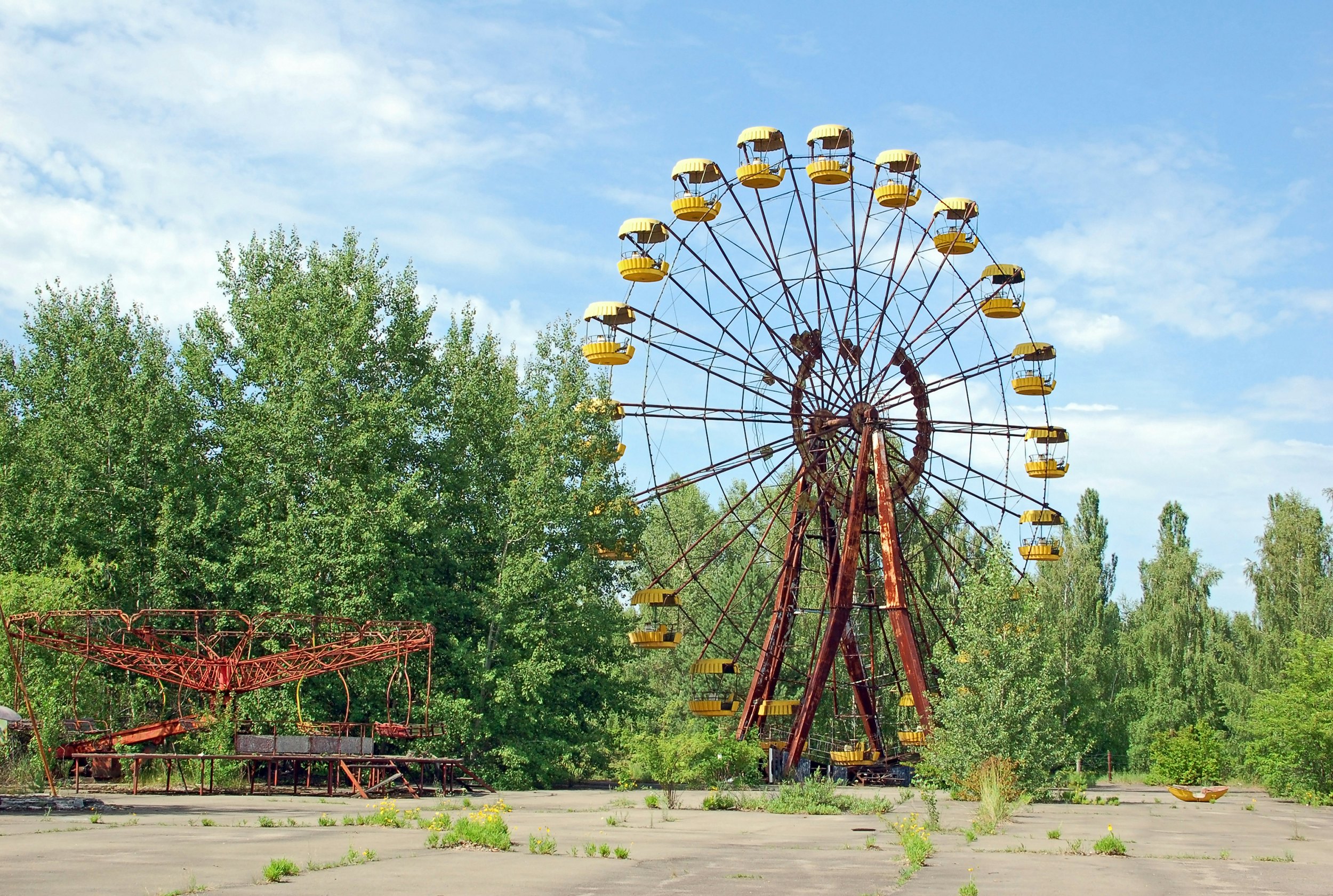
Thinking about the apocalypse, or really the end times in general has been with us since the beginning of recorded history. I wonder if you think that there might be some element of comfort that people find in the apocalypse.
To step back from it and to take sort of a psychological view of the thing, I think it just makes sense. If you're living in times of really rapid change and uncertainty when the future seems increasingly dark and unknowable, the idea that this might be the end might give you some sense of, "Well, at least we know where we are." I suppose there's some narcissistic pleasure maybe in being among the elect of history, the people who get to see the final act, you know, that's very deeply hardwired into us in ways that we don't fully understand.
Find out more about Notes from an Apocalypse.







